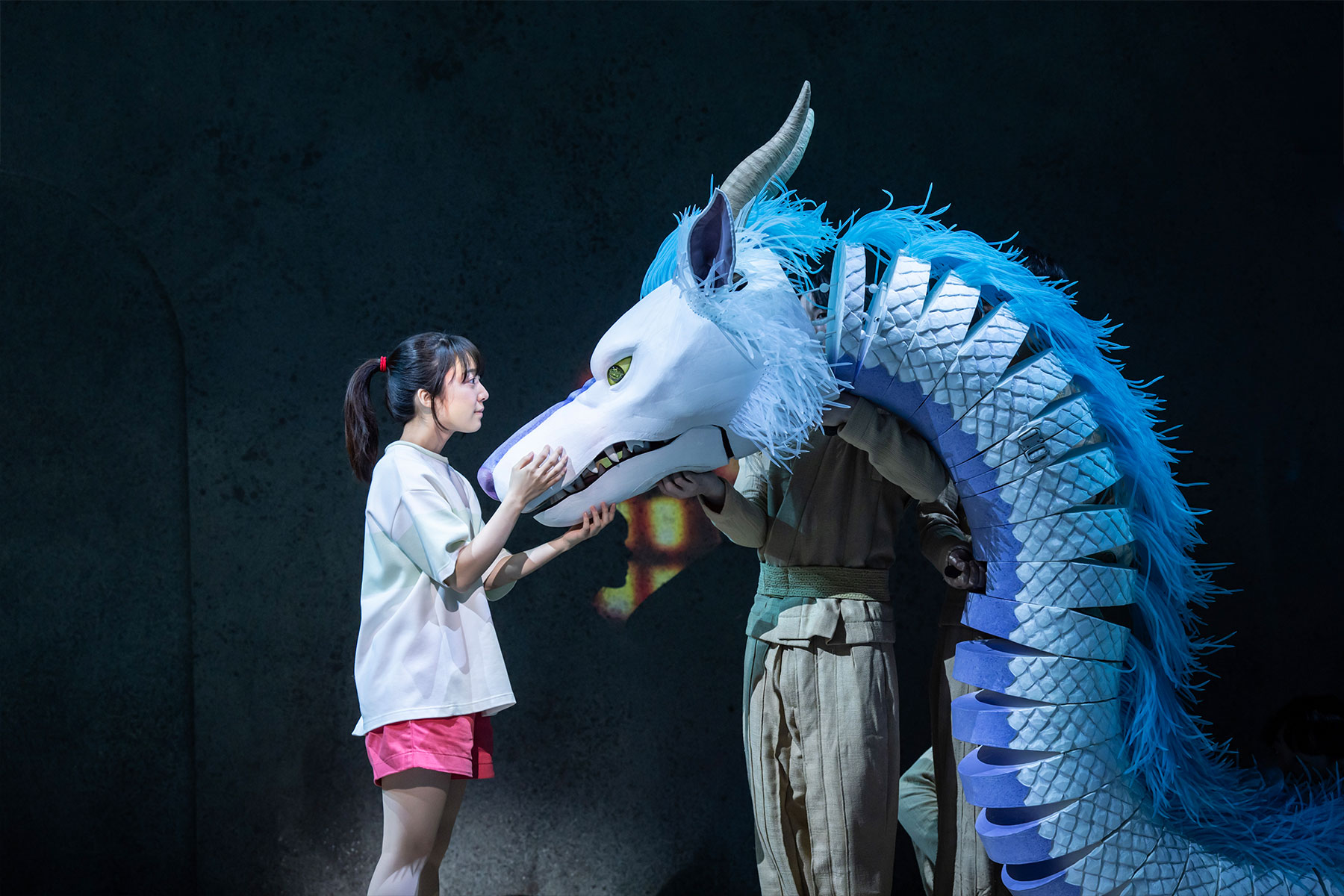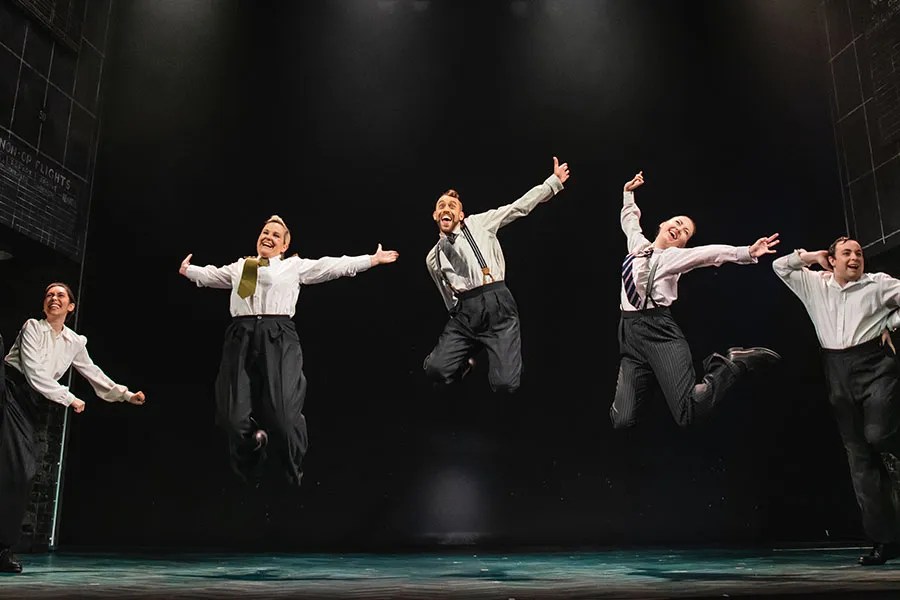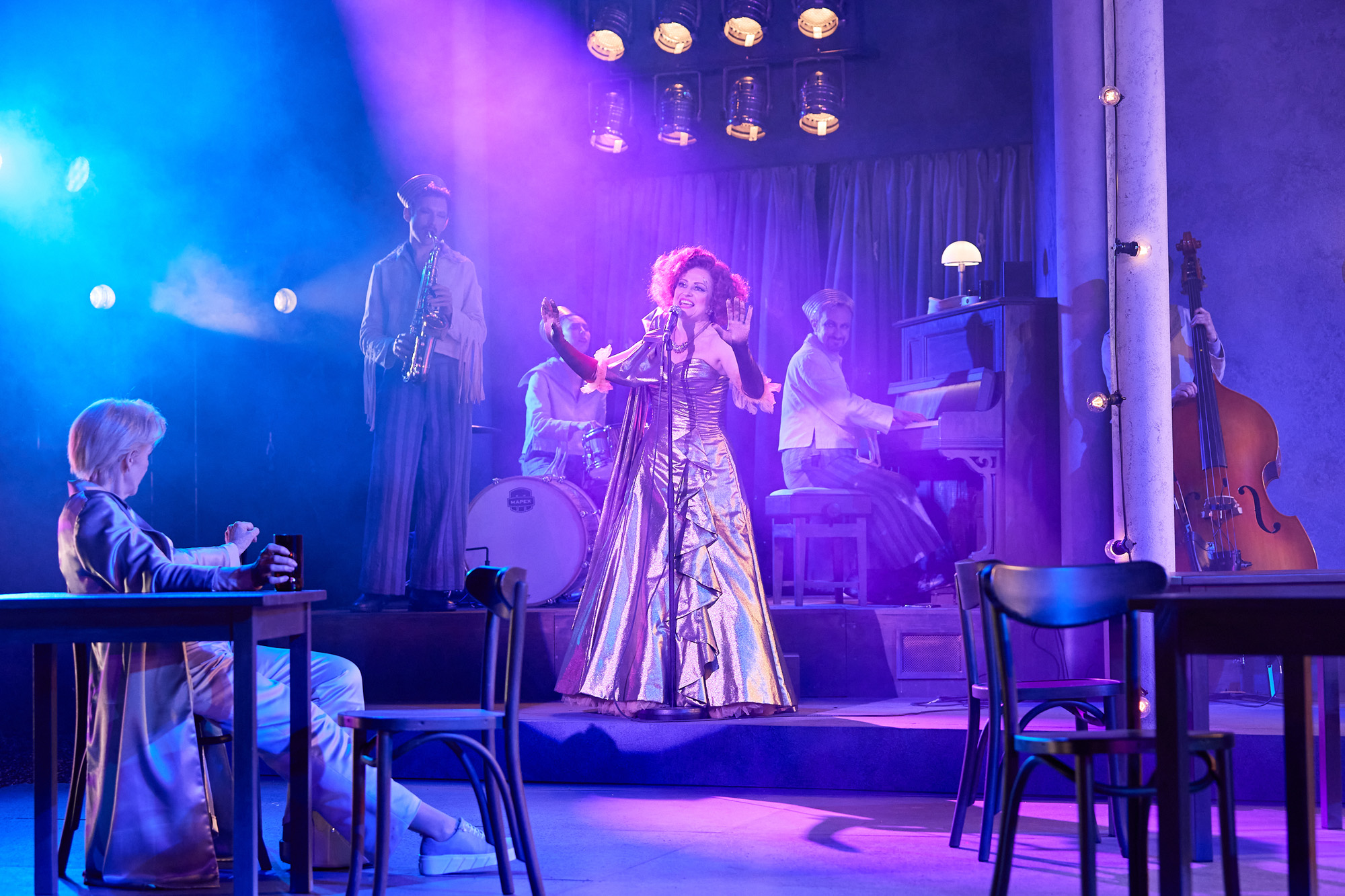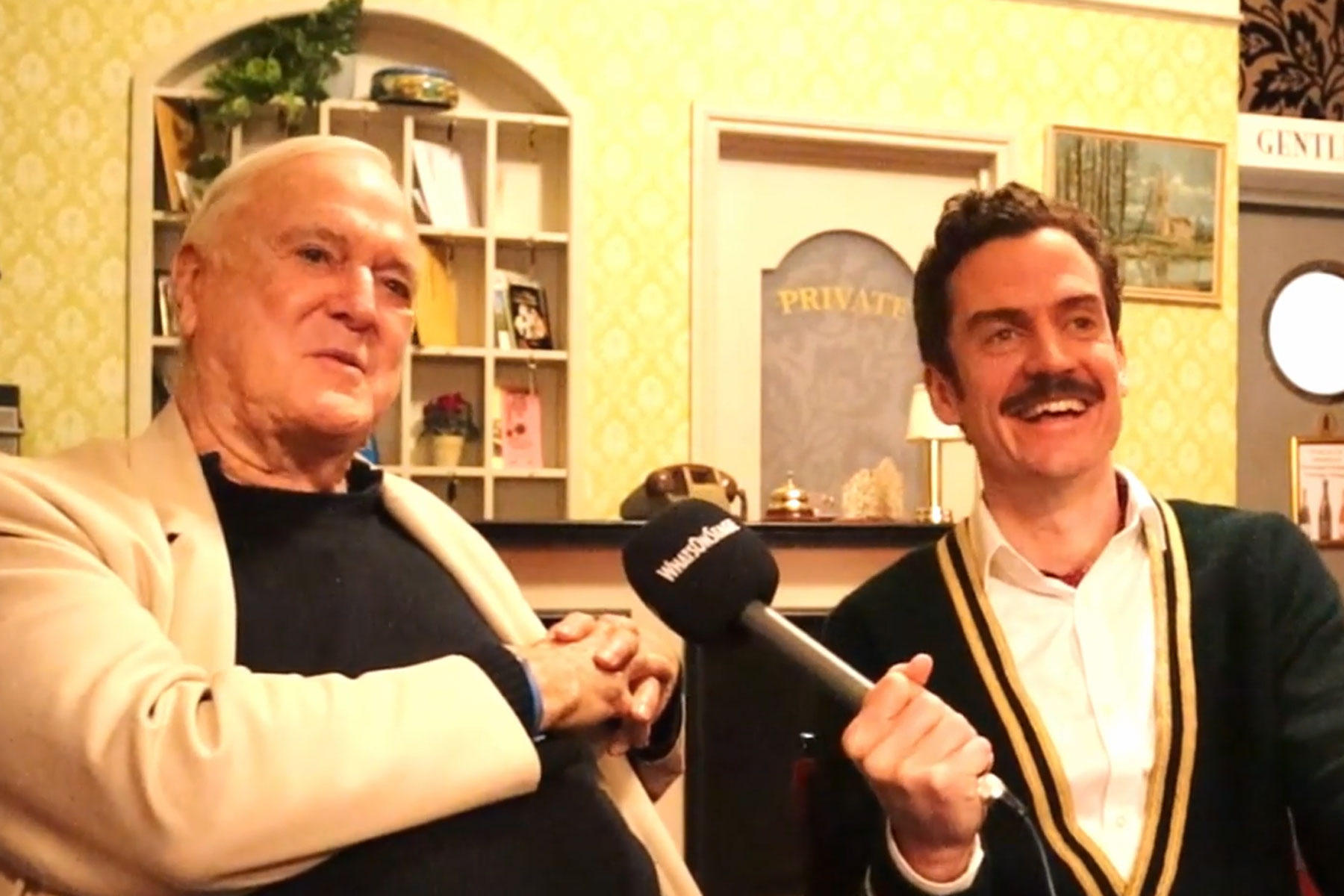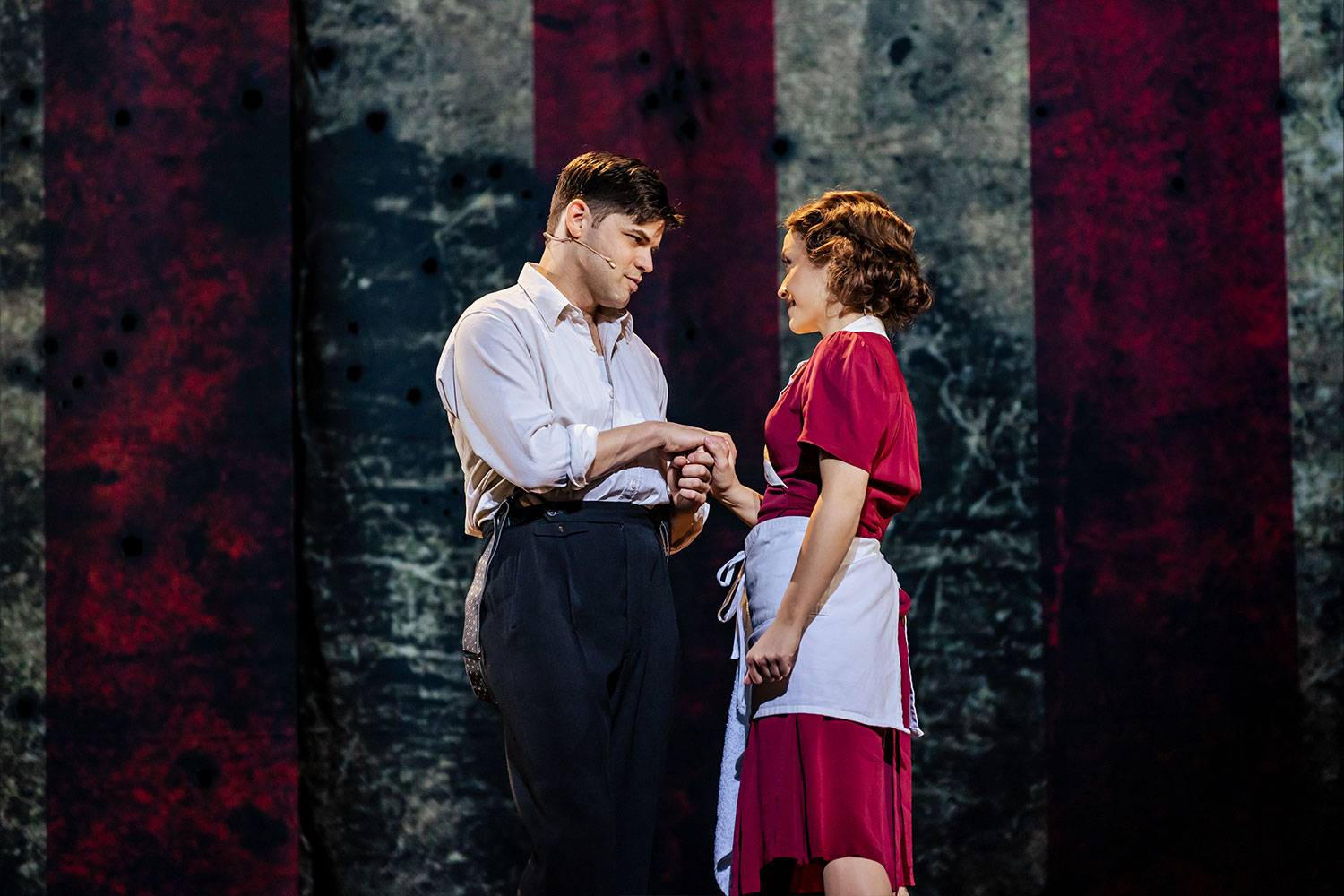Three Days of Rain
There’s a vivid speech in the first act of Three Days of Rain about Walker’s mother, Lina, throwing herself through a glass window in the family’s eleven-room Manhattan apartment. When we meet Lina in the second act, thirty-five years earlier, before Walker is born, she tells us in a blurred Southern drawl: “I want to be a negro blues singer or a very interesting alcoholic.”
Walker has returned a year after missing his father’s funeral. What will happen to the famous house he built, and what does the opening entry, “three days of rain” in a dusty old diary, mean? In the second act, we flash back to 1960 with the two dads – played by their respective sons – and the aforesaid bourbon-swigging Lina (Marshal again, contrasting Boston chic with Tennessee Williams louche) embroiled in an argument that drives them apart.
And this is all down to the rain, which falls in a great sparkling sheet almost as impressive as the one we had last year at the Savoy for the Take That tribute show. Jamie Lloyd’s energetic production, which comes with an imposing grey design by Soutra Gilmour of the Manhattan loft and an atmospheric soundtrack by Matt McKenzie, is very well done but doesn’t really convince me that the play – in which Julia Roberts made a less than ecstatically received Broadway debut three years ago – was all that worth reviving beyond the acting opportunities it offers; maybe that’s enough. But were the children of the 90s no more than self-satisfied inheritors of a Sixties creative passion?
Still, McAvoy is wonderfully fresh, trembling with misdirected vitality as Walker and then creating a sensitive, stuttering soul as his own father, the disability projected with great technical finesse and no hint of patronising embarrassment. Harman is a convincingly shiny daytime television personality as Pip, subsiding into anger and resentment as his own father, while Marshal confirms her status as one of our most talented and polished comediennes, hilariously fulfilling Walker’s first act assessment of Lina as resembling Zelda Fitzgerald’s less stable sister.
– Michael Coveney



